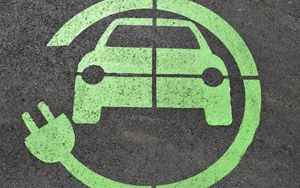(Finance) – Today a great one consortium formed by 30 European partners meets at Barcelona to launch the FLOW projectwhich aims to promote a concept of mobility electric suitable for the end user for the benefit of the energy system of all of Europe. The initiative will test, validate and enhance the so-called “Vehicle-to-X”, which allows the exchange of energy between vehicles, buildings and the grid. The European Parliament has voted to ban new sales of fossil fuel cars by 2035, and FLOW will provide a solid foundation to facilitate the upcoming mass adoption of the electric vehicle.
According to estimates by the International Energy Agency, by 2030 the energy demand for the vehicles electrical it will account for up to 6.5% of final electricity consumption in Europe and electricity sales will almost touch 60 billion euros a year. However, the implementation of electric mobility in urban and rural areas entails several challenges, including accessibility to suitable charging infrastructures and the established habit of users of using combustion vehicles. The project aims to overcome the main obstacles faced by drivers in charging and using electric vehicles and to offer solutions and alternatives to these challenges.
Cristina Corchero, coordinator of the consortium, explains that “The FLOW project represents a unique opportunity to better understand the potential of energy flexibility when reaching mass deployment of electric vehicles”. He also adds: “This will be possible thanks to the union of the forces of key players in both the electricity and mobility sectors”.
The solutions developed as part of FLOW will offer the answers to the imminent mass use of electric vehicles for all the players involved, come on distribution system operators (DSO) to charging point operators, mobility service providers, infrastructure producers up to end users. The main objective is to confirm and quantify the benefits offered by the charging flexibility of electric vehicles and reduce network problems to achieve the decarbonization energy in the transition to a sustainable mobility model.
A total of 5 demonstration sites will be built to determine the impact on different energy systems in the Czech Republic, Ireland, Italy, Denmark and Spain. The project is coordinated byCatalonia Institute for Energy Research (IREC) and created by a multidisciplinary team made up of academic partners, small, medium and large companies in the energy and mobility sector and large European industrial associations.
The multinational of energy Is in the is partner of the project through some of its main subsidiaries. Enel Grids will make available the global experience of the Group as the largest operator of private distribution networks in the world by number of end users, also enhancing the participation of e-distribution and e-distribución for the Italian and Spanish demos, respectively. Enel Grids will demonstrate system integration at Enel Flexibility Labs, using the smart grid technologies of its subsidiary Gridspertise.
Enel X Waya company of the Enel Group entirely dedicated to electric mobility, ed Endesa X Way, the Group’s Spanish electric mobility company, both providers of the charging infrastructure and smart charging platforms and aggregators, will coordinate the work package “Implementation and evaluation in large-scale demonstration cases”, which includes the Italian and Spanish demos and Danish. Enel X Way will be particularly involved in the architecture, construction, verification and validation of the Italian demo, in Rome, while Endesa X Way will contribute to the realization of the Spanish demo on the island of Menorca. Enel X, the Enel Group company dedicated to advanced solutions forenergy efficiency and the supply di energia, will participate in the realization of the Italian demo with its flexibility solutions, using its platform for aggregation and market access, and allowing electric vehicles connected to the charging points to provide flexibility services to the network.
When the potential of energy exchange with the grid, electric vehicles will bring about real change. To achieve this, it is essential to test the energy flows and driving patterns of real users on real grids, and the results of this pioneering project will inspire policy and definition of best practice. The ultimate goal of the FLOW project is to enhance electric mobility until it becomes the motor principal of European transport.
